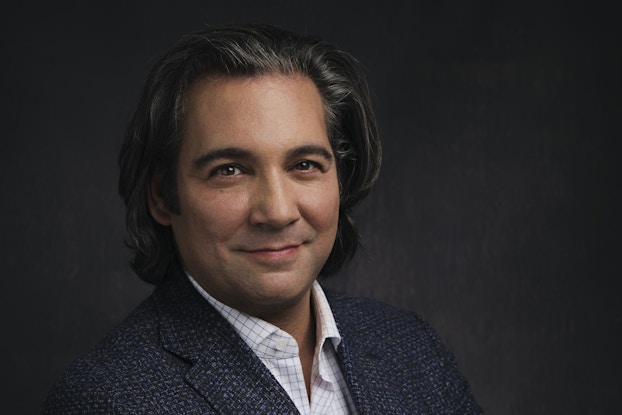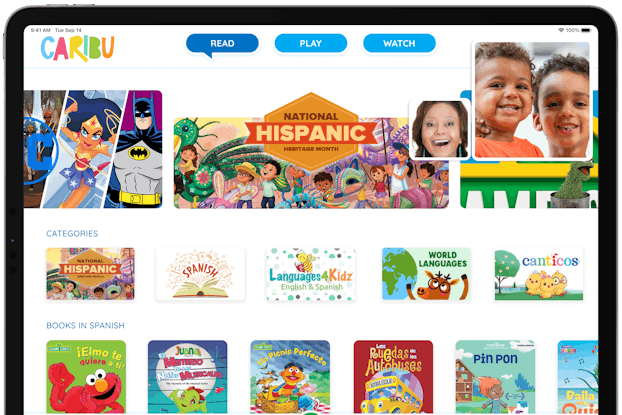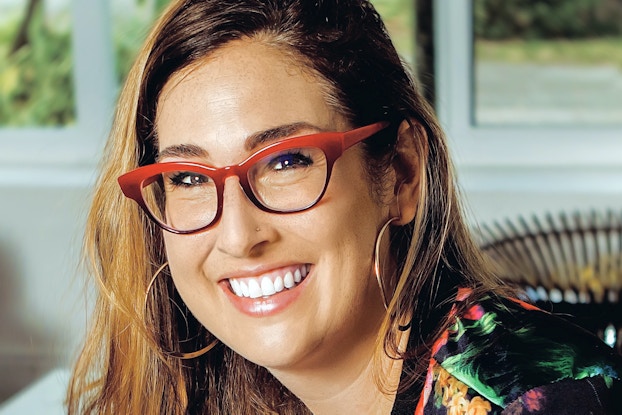
Why it matters:
- The purchasing power of Latino consumers in the U.S. is poised to surge to $2.6 trillion by 2025, up an estimated 150% in the last decade.
- Although technology exerts an ever-growing influence on culture, commerce, and business, Hispanics make up a mere 8% of employees in the U.S. high-tech sector, compared to 68.5% of their white counterparts.
- Against that backdrop, apps founded by Latino tech entrepreneurs such as video-calling platform Caribu, job-search startup Chamba, and teletherapy app Yana have generated millions of downloads and amassed a robust following by speaking directly to a Hispanic audience.
Latino-run startup apps are tapping a growing Hispanic audience hungry for a broad mix of authentic, culturally nuanced content and services — from entertainment and education technology to digital talk therapy.
They’re breaking new ground in a tech sector where Hispanic founders are underrepresented and Latino consumers are underserved, founders and Apple executives said during the company’s meet and greet with Latino app entrepreneurs attended by CO—.

Interested in a small business membership?
Find out how the U.S. Chamber of Commerce can help your company grow and thrive in today's rapidly-evolving business environment. Connect with our team to learn how a small business membership can benefit your bottom line and help you achieve your goals.
“We’re living in a time when tech truly drives culture, and anyone with a great idea and an ability to code” can, theoretically, launch an app, said Smokey Fontaine, Editor-in-Chief of the App Store, noting that small developers account for more than 90% of the apps on the tech giant’s app store. Yet, “there’s a very small community of Latinos and Latinas in the world of startup developers.”
He’s not wrong: Hispanics make up a mere 8% of employees in the U.S. high-tech sector, compared to 68.5% of their white counterparts, according to a U.S. Equal Employment Opportunity Commission report.
Apple says it’s committed to changing that statistic with grants, scholarships, and programs like Entrepreneur Camp, where BIPOC and Hispanic techpreneurs receive one-on-one guidance from Apple experts and engineers on building, testing, marketing, and distributing their apps.

“We [Latino founders] have had to find each other, and tech is a great equalizer,” said Steven Wolfe Pereira, the CEO and founder of “purpose-driven entertainment” app Encantos.
Wolfe Pereira and other Latino app founders said good old-fashioned word of mouth has proved pivotal to their success.
Wolfe Pereira launched Encantos in 2015 to both share his Dominican culture with his kids and fill a void in the market for entertainment that speaks to Hispanic children. “Almost 30% of U.S. kids are Latino,” yet most entertainment apps ignore them in the cultural conversation, he said. Encantos took off, he said, and today counts backers like Chelsea Clinton among its investors.
The purchasing power of Latino consumers in the U.S. is poised to surge to $2.6 trillion by 2025, up an estimated 150% in the last decade, according to a Hispanic Marketing Council report, citing Nielsen data.
Today, businesses that neglect the Hispanic community do so at their own expense: The purchasing power of Latino consumers in the U.S. is poised to surge to $2.6 trillion by 2025, up an estimated 150% in the last decade, according to a Hispanic Marketing Council report, citing Nielsen data.
And U.S. Latinos would boast the world’s fifth largest GDP (larger than India, France, or the UK) if they were an independent country, according to new research from the Latino Donor Collaborative.
“We just have to get more of our community involved so that they’re not just consuming content but creating content,” Wolfe Pereira said.

Caribu: Video calling with Abuela helps draw one million app users
Maxeme Tuchman founded video-calling app Caribu to connect kids with family members for virtual playdates when they can’t be physically together.
Via Caribu, grandkids, who on average live one hour away by car from their grandparents,
can read books or draw together with their abuela (grandmother in Spanish), for example, Tuchman said. “They have shared experiences while keeping a child engaged and entertained.”
The very concept of the app, which launched in 2019, seemed to presage the social-distancing era that was to come. Caribu’s customer base soared when the pandemic hit — “We 10xed the [value of] company across all metrics in 24 hours on March 14, 2020,” she said.

Combined, word-of-mouth buzz and customer referrals have generated 100%-plus year-over-year revenue growth since 2019 for the app, which counts more than one million users today, Tuchman said.
“Referrals are built into our app so our customers can share Caribu with others, while word-of-mouth referrals happened organically,” Tuchman told CO—. “Once families saw how much of a game changer Caribu was to building more meaningful relationships through a video call, they spread the word like wildfire to their friends and family.”

Chamba: The ‘LinkedIn for Latinos’ boasts 50,000 jobs from 187 employers
Diego Montemayor founded bilingual job-search app Chamba, a kind of LinkedIn for Latinos in the food and beverage industry, to “make jobs more accessible for the Latino community,” he said. “It’s created by Latinos and immigrants who understand their job seekers.”
Chamba bills itself as the first bilingual language app targeting the Hispanic community, including immigrants for whom English is their second language. Workers can apply for a job without the language and cultural barriers they often face when navigating traditional job search sites, Montemayor said.
With Chamba, Montemayor, who at 12 crossed the border from Mexico to the U.S., is on a mission to create newfound employment opportunities for “an underserved and untapped workforce” amid a labor shortage that’s dogged the hospitality industry in a post-COVID world, he said.

Word-of-mouth helped Chamba build a following, along with social media and partnerships with nonprofits that serve victims of human trafficking and domestic abuse, at-youth risk, and the previously incarcerated. “They bring clients in that need opportunities,” Montemayor said.
To date, Chamba has posted 50,000 jobs and helped 187 clients ranging from small- and medium-sized restaurants to hospitality groups to large corporate partners like Kroger.
“During the last four months we’ve seen a 40% percent increase in hospitality clients,” Montemayor said.
[Read: How LinkedIn Services Marketplace Is Helping Small Businesses Grow]

Yana: Mental wellness app for Spanish speakers racks up 10 million downloads without paying ‘a single cent in marketing’
A preternaturally melancholy child, Mexico-born Andrea Campos just figured “sadness and loneliness were a part of my personality,” she said.
Fighting the fear of judgmental eyes, Campos sought out cognitive behavioral therapy (CBT) and found relief. Just as she discovered CBT, she learned how to code.
And at an event that challenged students to create a business in three days, Yana was born.
But unlike the growing list of teletherapy apps like Talkspace that pair users with mental health professionals, Yana serves its Spanish speaking audience via a chatbot that offers tools like a daily “behavioral activation” plan based on specific goals, Campos said.

“Our mission is to empower people to reduce the amount of anxiety and depression today,” she said, noting that Yana’s strategies are vetted by mental health professionals.
“It’s cheaper and more accessible [than traditional therapy] and an anonymous, judgement-free space.”
The app has carved a niche among 18-to-25-year-old women, for whom Yana “has become a best friend to a mother figure,” Campos said.
Like other teletherapy apps that saw business spike amid the pandemic, Yana’s March 2020 debut drew a similar response.
From then on, word-of-mouth proved to be Yana’s customer acquisition secret sauce: The site has generated 10 million downloads via word of mouth. “We have not paid a single cent in marketing,” she said.
“Everything was organically [generated] by the people who love Yana,” Campos told CO—.
“Psychologists recommend it to their patients so they can get help while they are waiting for their next session; teachers recommend it to their students so they can start getting emotional education even though it is not being taught in school; ordinary people — not influencers — create TikTok videos that become viral,” she said. “All of these things have happened because those people have had a great experience with Yana, not because we asked them to do those things.”
CO— aims to bring you inspiration from leading respected experts. However, before making any business decision, you should consult a professional who can advise you based on your individual situation.
CO—is committed to helping you start, run and grow your small business. Learn more about the benefits of small business membership in the U.S. Chamber of Commerce, here.







